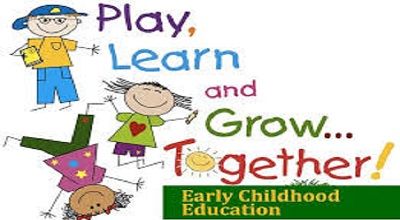Early Childhood Education
Early Childhood Education (ECE) refers to the period of learning. That takes place during the early years of a child’s life, typically from birth to around eight years old. It is a crucial stage of development that lays the foundation for a child’s future cognitive, emotional, social, and physical development. Early childhood education focuses on providing young children with a nurturing and stimulating environment. In which they can acquire essential skills, knowledge, and values.
Here are some key aspects of Early Childhood Education:
- Holistic Development: ECE programs aim to support the holistic development of children, encompassing cognitive, social, emotional, and physical growth. This includes developing language and communication skills, fine and gross motor skills, social interaction abilities, and emotional intelligence.
- Play-Based Learning: Play is a fundamental part of early childhood education. Through play, children explore their surroundings, develop problem-solving skills, learn about relationships, and build their creativity and imagination. Play-based learning is often used as a primary teaching method.
- Curriculum and Learning Goals: ECE programs may have specific curricula or learning goals that focus on age-appropriate educational objectives. These objectives often align with early literacy, numeracy, science, and social studies skills.
- Socialization: Early childhood education provides opportunities for children to interact with their peers. Helping them develop social skills, empathy, and a sense of community. Learning to cooperate, share, and communicate effectively are essential aspects of this stage.
Read more…
- Qualified Educators: ECE programs are typically led by qualified educators or early childhood teachers. Who is trained to understand the unique needs and development of young children?
- Parent Involvement: Many ECE programs encourage active involvement from parents and caregivers. This collaboration helps ensure that children receive consistent support and learning experiences both at home and in educational settings.
- Assessment and Monitoring: Assessing children’s progress and development is a part of ECE to identify areas. Where additional support may be needed to ensure that educational goals are being met.
- Inclusivity: Early childhood education strives to be inclusive, accommodating children with various backgrounds, abilities, and needs. Inclusive environments promote diversity and support the growth of all children.
Early childhood education can take place in various settings, including daycare centers, preschools, nursery schools, and home-based programs. The specific approach to ECE can vary based on cultural, educational, and regional factors. However the overall goal is to provide a nurturing and stimulating environment. That fosters children’s growth and development during these crucial formative years.
Advantages & Disadvantages Of Early Childhood Education
Early Childhood Education (ECE) offers numerous advantages, but it also has some potential disadvantages. Here’s a breakdown of both:
Advantages of Early Childhood Education:
- Developmental Benefits: ECE programs can enhance a child’s cognitive, social, emotional, and physical development. Early exposure to educational experiences can help children acquire essential skills and knowledge that set the stage for future learning.
- School Readiness: ECE programs can prepare children for formal schooling by introducing them to concepts like letters, numbers, and basic academic skills. This can give them a head start in kindergarten and beyond.
- Socialization: ECE provides opportunities for children to interact with peers, helping them develop social skills, cooperation, and conflict resolution abilities. This early socialization is essential for building positive relationships later in life.
- Emotional Intelligence: ECE encourages the development of emotional intelligence. Allowing children to recognize and manage their emotions, understand others’ feelings, and develop empathy.
More here…
- Language and Communication Skills: Exposure to language-rich environments in ECE settings can foster early language development, leading to improved communication skills.
- Parental Involvement: ECE often involves parents or caregivers, promoting family engagement in a child’s education and creating a supportive learning environment at home.
- Diversity and Inclusivity: ECE programs often prioritize inclusivity and diversity, exposing children to different cultures, backgrounds, and abilities, which can promote tolerance and acceptance.
Disadvantages of Early Childhood Education:
- Cost: High-quality ECE programs can be expensive, making them inaccessible to some families. This can create disparities in access to quality early education.
- Quality Variability: The quality of ECE programs can vary widely, and not all programs meet the same educational standards. Low-quality programs may not provide the expected benefits.
- Pressure and Stress: In some cases, ECE programs may place too much academic pressure on young children, potentially leading to stress and burnout.
- Lack of Playtime: Overly structured ECE environments may limit children’s opportunities for unstructured play, which is crucial for creativity and problem-solving.
- Separation Anxiety: Some children may experience separation anxiety when starting ECE programs, which can be emotionally challenging for both the child and the parent.
- Standardization: Overemphasis on standardized testing and academic achievement in ECE may neglect other important aspects of child development, such as social and emotional growth.
- Teacher Quality: The effectiveness of ECE largely depends on the qualifications and training of educators. Insufficiently trained teachers may not provide the best learning experiences.
Last Words
It’s important to note that the advantages of ECE often outweigh the disadvantages, especially. When high-quality programs are accessible and emphasize play-based learning, socialization, and emotional development,. Additionally, addressing the disadvantages, such as cost and quality issues, through policy initiatives can help ensure. More children have access to quality early childhood education, maximizing its benefits for all.
